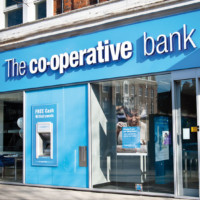
The lender, which last month announced it was starting a sales process, posted a statutory loss before taxation of £477.1m, compared with £610.6m in 2015.
Mortgage originations continued to increase last year, with completions totalling £3.1bn in 2016 compared with £2.8bn in 2015 and £1.1bn in 2014.
Co-op praised its “award-winning” intermediary channel Platform, which accounted for 91% of completions. The retail mortgage book grew by 5% to £14.1bn from £13.4bn in 2015, representing 1.1% market share.
The lender, which also trades as Britannia and Smile, aims to increase mortgage sales, with a target of growing core customer assets by £1bn each year, primarily driven by the Platform brand.
Overall, the results painted a bleak picture for the bank, which is struggling to recover from legacy problems, including absorbing losses from its merger with Britannia Building Society, historic under-investment and a significant hole in its capital from its near-collapse in 2013.
Remediation and strategic project costs increased to £275.6m in 2016, reflecting the transformation required to address the historic under investment in systems and processes. This includes £81.9m expensed in connection with the mortgage outsourcing programme, of which £48.5m relates to assets no longer expected to be in use.
Buy-to-let (BTL) originations have fallen slightly year-on-year driven by the changes announced in the 2016 Budget and regulatory changes in the BTL affordability calculations required to be implemented by the end of 2016, said the bank.
Redemptions have also been lower at £1.7bn (2015: £2.3bn) which is partially due to a slower reduction in mortgage market rates across 2016, making it less attractive for customers to break their present deals than in 2015.
As potential buyers eye the bank, it shows no signs of being close to a return to profitability. A failure to sell would mean it would have to rely on raising significant levels of capital through a debt for equity swap and by issuing new shares. In the event that was not possible, regulators may need to take action.
In his statement chief executive Liam Coleman said: “It is important to highlight that the bank is stronger in many areas than in 2013. In 2016 our achievements reflected a number of significant steps forward as the bank continued to address the legacy issues of the past, while building a renewed, digitally-enabled retail bank for the future, differentiated by its distinctive ethical brand and strong customer service.
“The announcement of a sale and consideration of other options to build capital is therefore about how the bank sees through the next stage of its turnaround plan, recognising there is considerable potential in the bank given the strength of the brand, its reputation for strong customer service and distinctive position based on its values and ethics.”















